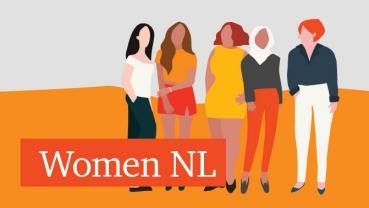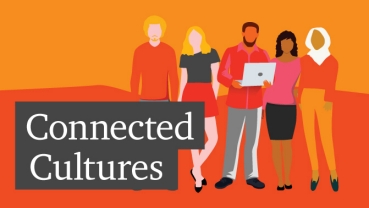
Interview BLM and I&D
Inclusion and diversity require action from everyone
PwC staff members Pauline Mbundu and Remold Krol talk about the internal exchange of letters in the light of the Black Lives Matter movement, about racism and discrimination, and about inclusion and diversity. How do they look back on a year in which these issues were prominently spotlighted in the media, in society, and within PwC?

Pauline Mbundu (38)
- Manager Consulting
- Chair of Connected Cultures
- Pauline has worked at PwC’s Consulting division for twelve years now and is one of the letter writers around Black Lives Matter.
- Besides her work at PwC, she’s also the founder of the African Young Professional Network foundation and chair of the Bolingo Community foundation.
Valuable experience
Pauline: ‘For me, of course, it didn’t just start with the exchange of letters. BLM exists since 2013 and I have been interested in the movement since its start due to my cultural background. But writing my letter was something quite personal and impactful for me. I had to look back over the past twelve years, at both the pleasant and unpleasant things. This was pretty intense!'
‘Fortunately, the exchange of letters was a very valuable experience for me and also, I believe, for PwC as a whole. That exchange of letters in the course of the summer of 2020 gave an extra push to the issue and in my opinion has led to greater attention for it within PwC, and a more profound approach to it. I myself received a lot of positive responses from colleagues with different backgrounds: male and female, white people and persons of colour – a reflection of the organisation. A lot of colleagues also wanted to talk to me about BLM, diversity and inclusion, to share their experience, or delve deeper into the matter. This was valuable for all of us.’
Distinction based on external features
Remold: ‘As a white male, you don’t think much – if at all – about what you look like. That’s because you belong to what I’d call the privileged majority. So when reading the letters, I didn’t think much about what the author would look like. After all, that didn’t matter. But the actual content of the letters did make me face up to the facts. I realised that distinctions are made between people on the basis of external features. To a certain extent, unfortunately, it sometimes does make a difference who the messenger is. I became more aware of how we divide up people into groups and often use that as a criterion instead of their individual qualities.’
What really struck me about the letters is that every one of the writers referred to the feeling that – now and again – they’ve been ignored, haven’t been appreciated, and have had to prove themselves again, over and over. That’s why it’s good that PwC is focusing even more on inclusion. But diversity alone isn’t enough. The aim must be for everyone to be involved, to feel at home, and to be able to be themselves.’

Remold Krol (49)
- Manager Consulting
- Remold has been with PwC for five years and is one of the letter readers around Black Lives Matter.
Becoming comfortable with the uncomfortable
Pauline: ‘BLM and the exchange of letters within PwC have led to me daring to speak openly about how I feel as a black woman and how certain behaviour affects me and the people close to me. Previously, I preferred not to do so. I’m now more open about it, without being afraid of opposition. The open atmosphere that PwC has created has made me stronger and more self-confident in that respect. And also about discussing the issue with colleagues, because they too are increasingly aware of issues that have affected me my whole life. I think we are really working on becoming comfortable with the uncomfortable.’
Remold: ‘I’ve become more aware of the problem. I now think more often about whether I’ve behaved correctly towards my colleagues. Have I been inclusive in how I communicate, has nobody been ignored, are promotions and rewards based on effort and qualities rather than on unconscious prejudices? I’ve also noticed that other PwC colleagues and the organisation as a whole are thinking about things in the same way.’
I hope that where inclusion and diversity are concerned we’ll progress towards belonging. That way, we can ensure that everyone feels safe and can be themselves at PwC.’
Pauline: ‘I totally agree with that. Everybody ought to be judged on the basis of their talents and their achievements, regardless of what they look like or what their surname is. The approach that PwC has adopted does justice to that ambition.’

















